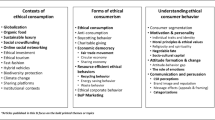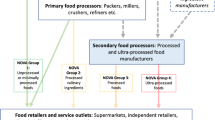Abstract
Medical practitioners owe much of the significant progress made in the diagnosis and treatment of disease to industrial research. Hence, co-operation between providers of medical services, most notably medical practitioners, and the pharmaceutical industry is in the best interest of patients. Yet, empirical evidence shows how well-directed influence exerted by the pharmaceutical industry impacts physicians’ decision-making. Profit-motivated inducement by the pharmaceutical industry may expose patients to considerable risks. Against what many think to be based on overwhelming evidence, Joao Calinas-Correia takes the view that the criticism levelled at the pharmaceutical industry as well as the call for transparency in the relationships between physicians and the industry are exaggerated. In his polemic he praises “Big Pharma” as a success and espouses the view that the undesired consequences of its activities are allegedly inherent in the underlying market environment shaped by politics. Moreover, he believes that the proposals made to control and eliminate such undesired effects will lead to mediocrity. Astonishingly, his polemic reaches out to contest the appropriateness of setting rules at all—even if being set by a democratic process. Calinas-Correia’s assertions are based on the wrong premises. They fail to recognize that today individual civil rights and liberties often enough do not have to be defended against encroachments by governmental authorities. Rather, it is incumbent on the state to create rules designed to defend the individual against infringements by overly powerful non-governmental institutions, in our case the medical-industrial complex. Given the power exercised by physicians and the special nature of their role in public health, clear-cut rules have to be enacted and implemented with respect to their relationship to Big Pharma.
Similar content being viewed by others
Notes
For additional literature see articles of this special section.
There is no doubt that a multinational perspective would have added to the distinction made. The regulations in place for the healthcare system differ considerably within the group of highly developed countries. This applies not least to the limitations imposed on providers of medical products. In no country is healthcare left solely to the wisdom of market forces.
Calinas-Correia's historical cross reference is a nice example of a witty twist brought to the frequently voiced demand that one should learn from history. One can just as well learn something wrong from history!.
In ever more areas of life, the issue is to defend civil rights and liberties and the interests of the individual against violations by powerful non-governmental institutions. The state has to assist its citizens in that endeavor (and assistance by other institutions is welcome as well!). The reason for this seems evident if one considers the long-acting consequences that often come along with modern technology—not to mention the sustainable effects they may have on personality in some cases.
Suffice it to think of today's very strict licensing conditions for new drugs. What is more, not every approved drug is paid for by the social insurance schemes. The costs are covered by most insurers only subject to the prior examination of the drug's efficacy by a governmental body, for instance by NICE in Great Britain.
Rising costs had been identified as a major risk to public health in almost any developed country.
In political philosophy and the philosophy of law, there is abundant literature explicating that the state’s authority is held to be insufficient with respect to contemporary legal and transnational relationships, e.g. see the debate about transnational constitutionalism. In this debate one aspect deals with the protection of the individual beyond the scope of the national state (Teubner 2010).
This statement holds true even in the light of the fact that—empirically—breaking the rules is observed in any given community as matter of fact. The question is if breaking the rules is the prevalent behavior. Imagine how Calinas-Correia would have spoken about tax payment. Would he be ready to state that citizens´ only aspirations would be tax evasion? Astonishingly enough, many societies function despite thermodynamic forces to increase chaos, i.e. rules obviously work well in many cases.
This insight must not be misunderstood as a moral accusation. The society could well create an appropriate demand by shifting resources. At this juncture it was just necessary to point out that the industry does not serve all interests in an equal measure. Calinas-Correia had suggested that by identifying and satisfying the hidden wishes of potential clients who then become patients, the industry acts as if it is discharging the duty of care.
References
Baker, C.B., M.T. Johnsrud, M.L. Crismon, R.A. Rosenheck, and S.W. Woods. 2003. Quantitative analysis of sponsorship bias in economic studies of antidepressants. British Journal of Psychiatry 183: 498–506.
Bero, L., F. Oostvogel, P. Bacchetti, and K. Lee. 2007. Factors associated with findings of published trials of drug-drug comparisons: Why some statins appear more efficacious than others. PLos Med 2007(4): e184.
Calinas-Correia, J.C. 2011. Big pharma—A story of success. Medicine Healthcare and Philosophy. 14:XXXX.
Campbell, E.G., and D.E. Zinner. 2010. Disclosing industry relationships—Toward an improved federal research policy. New England Journal of Medicine 363: 604–606.
Eckardt, V. 2000. Complimentary journeys to the World Congress of Gastroenterology—An inquiry of potential sponsors and beneficiaries. Zeitschrift für Gastroenterologie 38: 5–6.
Fugh-Berman, A. 2005. The corporate coauthor. Journal of General Internal Medicine 20: 546–548.
Fugh-Berman, A.J. 2010. The haunting of medical journals: How ghostwriting sold “HRT”. PLoS Med 7(9): e1000335. doi:10.1371/journal.pmed.1000335.
Hunter, D.J. 2011. Change of government: One more big bang healthcare reform in England’s National Health Service. International Journal of Health Services 41(1): 159–174.
Klemperer, D. 2009. Self-help groups conflicts of interest through sponsoring by the pharmaceutical industry. Bundesgesundheitsblatt Gesundheitsfroschung Gesundheitsschutz 52: 71–76.
Lo, B., and M.J. Fields (eds.). 2009. Conflict of interest in medical research, education and practice. Washington, DC: The National Academy Press.
Moynihan, R., I. Heath, and D. Herny. 2002. Selling sickness: The pharmaceutical industry and disease mongering. British Medical Journal 324: 886–891.
Moynihan, R. 2010. Who benefits from treating prehypertension? British Medical Journal 341: c4442. doi:10.1136/bmj.c4442.
Sahm, S. 2003. “Die Ethik des Heilens” und die Debatte um den Status des Embryos. In Der Status des Embryos, eds. Beckmann R, M. Löhr 2003. Würzburg 2003.
Schott, G., H. Pachl, U. Limbach, U. Gundert-Remy, W.d. Ludwig, and K. Lieb. 2010. The financing of drug trials by pharmaceutical companies and its consequences: Part 2: A qualitative, systematic review of the literature on possible influences on authorship, access to trial data, and trial registration and publication. Deutsches Aerzteblatt International 107: 295–301. Epub 2010 Apr 30.
Teubner, G. 2006. The anonymous matrix: Human rights violations by “private” transnational actors. Modern Law Review 69: 327–346.
Teubner, G.G. 2010. Fragmented foundations: Societal constitutionalism beyond the nation state. In The twilight of constitutionalism?, ed. P. Dobner, and M. Loughlin, 327–341. Oxford: Oxford University Press.
Voluntary Self-Regulation of Pharmaceutical Industry. 2010. (Freiwillige Selbstkontrolle für die Arzneimittelindustrie e.V. 2010.) Kodex für die Zusammenarbeit der pharmazeutischen Insutrie mit Ärzten, Apothekern und anderen Angehörigen medizinsicher Fachkreise http://www.fs-arzneimittelindustrie.de/FSA.nsf/E264D1677C4ECAB680256FC5003401AF/$File/Kodex%20Fachkreise_271109_Web.pdf (last access 3rd of April 2011).
Conflict of interest
The author received lecture fees from the Fresenius-Kabi and Falk-Foundation and together with his wife has shareholdings of less than 10,000 Euros in pharmaceutical companies.
Author information
Authors and Affiliations
Corresponding author
Rights and permissions
About this article
Cite this article
Sahm, S. On markets and morals—(re-)establishing independent decision making in healthcare: a reply to Joao Calinas-Correia. Med Health Care and Philos 16, 311–315 (2013). https://doi.org/10.1007/s11019-012-9390-z
Published:
Issue Date:
DOI: https://doi.org/10.1007/s11019-012-9390-z




